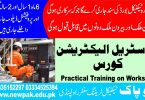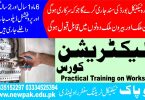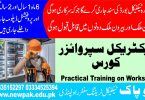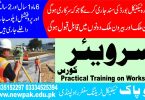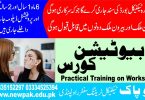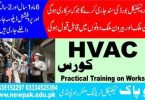
Tube Well and Pump Operator Course in Rawalpindi Islamabad
The Tube Well and Pump Operator Course provides essential training in the operation, maintenance, and troubleshooting of pumps and tube wells used in irrigation and water supply systems. Key topics include pump types, working principles, routine and preventive maintenance, and standard troubleshooting methods. The course also covers tube well components, water management practices, electrical systems and controls, water quality testing, and essential safety protocols, equipping learners with practical skills for technical roles in water management sectors.
Course Overview
This tube well and pump operator course is designed to equip students with hands-on knowledge in pump installation, system troubleshooting, water level detection, and electrical safety procedures. Participants gain practical training in operating submersible and centrifugal pumps, pipe fitting, and system maintenance for both agricultural and municipal use. It is ideal for individuals seeking careers as a tube well operator, pump operator, or those managing rural water supply systems. The 6-month and 1-year tracks offer progressive learning, starting from basic concepts to advanced maintenance and field applications.
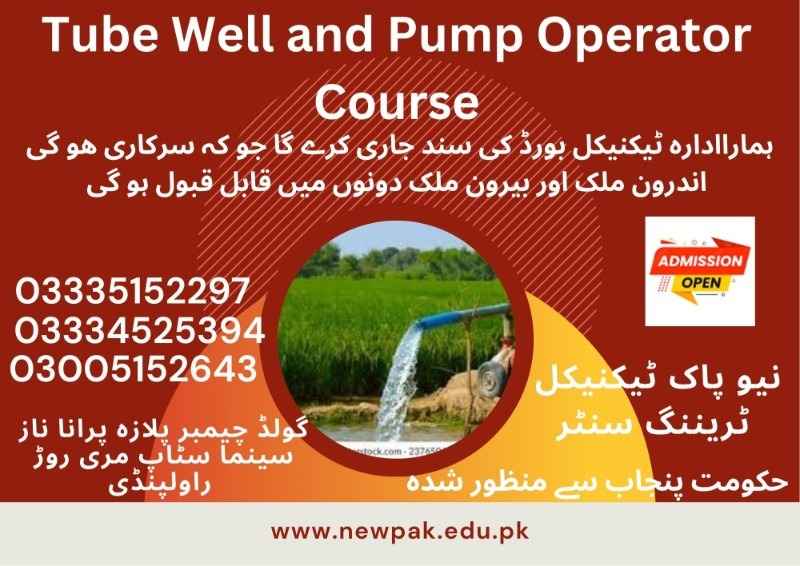
Course Duration
06 | Months
-
Introduction to Tube Wells & Water Levels
-
Types of Pumps & Their Applications
-
Submersible & Centrifugal Pump Basics
-
Motor & Pump Installation Techniques
-
Pipe Fitting & Valve Adjustments
-
Electric Motor Pump & Wiring Basics
-
Safety Protocols in Pump Operations
-
Tube Well Troubleshooting & Maintenance
-
Boring Measurement & Equipment Fitting
-
Low Water Level Detection
-
Practical Tests & Final Assessment
01 | Year
-
Introduction to Tube Wells & Water Levels
-
Types of Pumps & Their Applications
-
Submersible & Centrifugal Pump Basics
-
Motor & Pump Installation Techniques
-
Pipe Fitting & Valve Adjustments
-
Electric Motor Pump & Wiring Basics
-
Safety Protocols in Pump Operations
-
Tube Well Troubleshooting & Maintenance
-
Boring Measurement & Equipment Fitting
-
Low Water Level Detection
-
Practical Tests & Final Assessment
-
Advanced Repairs & Preventive Maintenance
-
Field-Based System Setup Practice
-
Performance Monitoring & Flow Testing
-
Independent Project / Mock Installations
-
Full System Simulation & Final Exam
Course Outline (6 Months)
Introduction & Basic Concepts
Month 1
- Introduction to tube well and pump operations
- Importance of underground water
- Basic information about underground water levels
- Types of pumps and uses
- Underground water source identification
- Overview of centrifugal pumps, motor pumps, and electric pumps
Motor and Pump Installation
Month 2
- Practical installation of a centrifugal pump
- Fitting of centrifugal motor pump
- How to lift water using pumps
- Submersible motor pump structure and installation
- Centrifugal pump installation and pipe fitting
- Electrical motor pump installation techniques
Electrical Knowledge & Safety
Month 3
- Introduction to electric motor pump
- How to protect electric motor pumps
- Basic safety protocols for pump operation
- Awareness of electricity and wiring basics
Troubleshooting and Maintenance
Month 4
- How to repair a centrifugal pump
- Underground water level checking
- Tube well faults and their solutions
- Identifying low water levels and their signs
- Tube well and motor protection techniques
Practical Applications & Adjustments
Month 5
- Adjustment and setting of motor pumps
- Boring measurement and equipment fitting
- Valve function understanding
- Pipe fitting and adjustment techniques
Testing, Review & Certification
Month 6
- Practical test of pump repair
- Pipe lifting using a pump setup
- Final theory and practical assessments
- Certificate distribution
Course Outline (1-Year)
Months 1–6: Basics of Tube Well and Pump Operator Course in Rawalpindi Islamabad
(Same course content as the 6-month program but with more detail, role-plays, software demos, and assessments.)
Advanced Application & Repairs
Month 7
- Practical test of the pump system setup
- Low water level detection and management
- Setting and alignment of pumping equipment
- Preventive maintenance procedures
Motor Repair & Troubleshooting
Month 8
- Fault detection in electric motor pumps
- Submersible motor repair steps
- Safety-focused troubleshooting
Independent System Setup Practice
Month 9
- Field-based mock installations
- Hands-on pipe and valve fittings
- System testing under variable load
Hydro Monitoring Systems
Month 10
- Continuous underground water level tracking
- Signs of improper flow or pressure
- Testing the performance of pump systems
Hands-on Practice and Revision
Month 11
- Recap of all modules
- Full system repair simulation
- Final theoretical evaluations
Final Examination & Certification
Month 12
- Theory and practical test
- Skill demonstration
- Certificate distribution
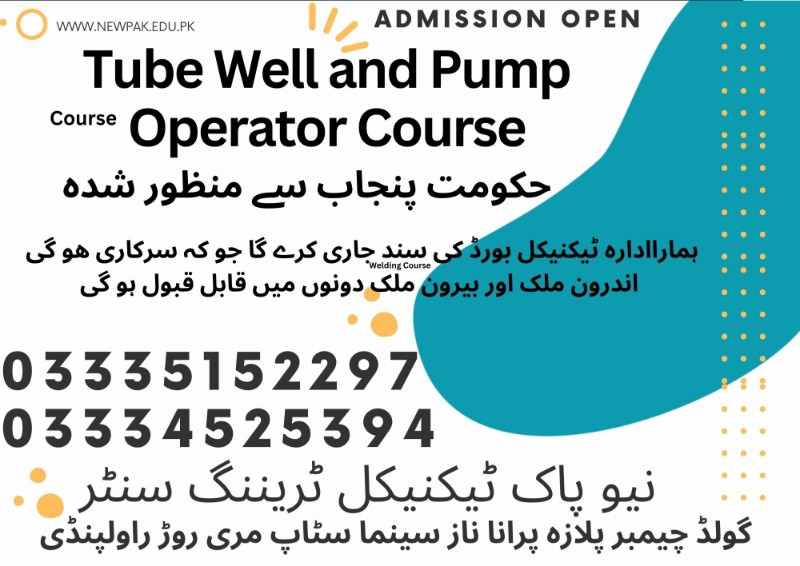
Career Opportunities
- Agriculture Sector
- Mining Industry
- Water Supply Services
- Maintenance Technicians
- Pump and Tube Well Operators
- Supervisors
Conclusion
The Tube Well and Pump Operator Course in Rawalpindi Islamabad at New Pak Technical Training Center, provides essential skills for maintaining water infrastructure, supporting sustainable agriculture, and contributing to water resource management. It prepares individuals for real-world roles such as tube well and pump operator, ensuring technical competency and field readiness.

